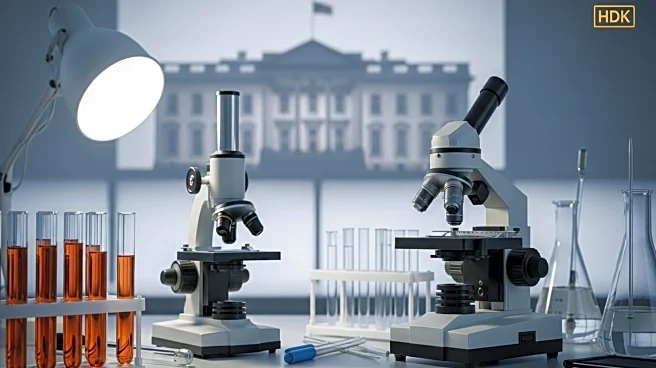What's Happening?
The Trump administration has canceled nearly $28 million in federal grants for animal testing, as federal health agencies phase out research on live animals in favor of alternatives. This decision is supported by an unlikely coalition of animal rights activists and bipartisan members of Congress, aiming to halt an estimated $20 billion annual federal spending on animal experiments. The move has sparked debate on the ethics and necessity of animal testing, which has historically played a crucial role in developing vaccines and medications. The shift towards alternative research methods is seen as a win for public health and ethics.
Why It's Important?
The reduction in animal testing funding marks a significant shift in research practices, potentially impacting the development of new medical treatments. While alternatives like AI-based modeling and lab testing on human organs are evolving, experts caution that these methods may not yet fully replace animal testing. The decision reflects growing ethical concerns and the influence of animal rights advocacy, challenging traditional research paradigms. The move could lead to changes in how medical research is conducted, affecting stakeholders in the healthcare and pharmaceutical industries.
What's Next?
Federal agencies are expected to continue exploring and implementing alternative research methods, with the FDA promising a paradigm shift in drug approval processes. The transition may face challenges as the scientific community evaluates the effectiveness and reliability of new techniques. Ongoing debates may influence future policy decisions and funding allocations for medical research, with potential implications for patient outcomes and drug development timelines.











